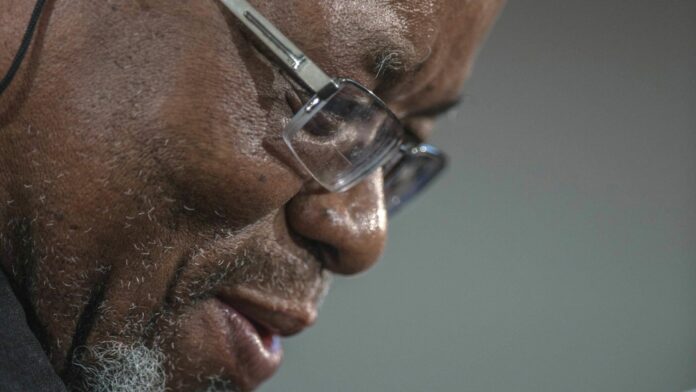
THERE’S a long-standing view around town that the South African Government gaslights its mining industry with horror legislative proposals as a negotiating technique.
There may be something in this. In May it appeared to perform a volte face when the Department of Minerals & Petroleum Resources (DMPR) imposed empowerment targets on exploration firms as part of amendments to the Minerals & Petroleum Resources Development Act (MPRDA).
Then it did another reversal by removing those obligations from the amendments in a correction to the previously gazetted bill. Clear evidence some say, of the DMPR softening up the industry ahead of negotiations on the MPRD bill.
But there’s another interpretation of events, however, that may be more worrying. Speaking at the Minerals Council South Africa’s annual general meeting on May 28, mines minister Gwede Mantashe appeared unaware of the exact contents of the amendment bill.
“[T]here is no BEE requirement for exploration because in exploration,” he said. “You are looking for the quantity and quality of deposits; you are not extracting from it. So we are not expecting you to look for an equity partner for exploration,” he added.
Was Mantashe playing the Machiavel or did he just not know?
If tactically looking to put the industry on the backfoot, it doesn’t seem to have washed; at least with the Minerals Council.
“The Bill in its current form does not encourage or sustain the growth and investment that the mining industry needs to realise its full potential to create employment, stimulate the economy and fulfil its social mandate,” it said in a statement, noting the corrections. (The other correction removed a requirement for mining firms to apply for ministerial permission in terms of Section 11 of the MPRDA on a ‘change of control”, however fractional.)
In the end, the greater part of Mantashe’s MPRD bill smacks of neglectful political will.
In a rambling AGM address, Mantashe said: “The real question is: ‘Is BEE chasing away investment, or is it addressing over-concentration of ownership of the means of production?’ These are the two areas we must analyse as an industry.”
BEE, described in classical Marxist terms, is almost certainly driving away new investment in South African mining.
Mantashe is a political being stuck in the past, wedded to unworkable dogma, and driven by revenge. The Minerals Council defeated his department in the High Court in 2021 on the issue that once mining companies had fulfilled their empowerment duties – in respect of ownership – they were not required to do it again.
This moment clearly rankles Mantashe, “One principle I want to establish is ‘once empowered, always empowered.’ We had a discussion about this in court, and the industry celebrated one of the cases as a victory,” he said at the AGM.
“But empowerment, to me – I don’t know about other people – is about the production of black capitalists in the system. It should produce black capitalists who can create employment opportunities.”
His department has invited industry comments on the bill – until August 13 – but it’s questionable whether its heart is really in authentic debate.
“Now, it is very important to appreciate that the revision of the MPRDA is a discussion that is open. Raise your issues – don’t make assumptions. If you want to challenge something, prepare your case, because if you think you can take us to court, talk to us first. We want to revise the Act, but we are not going to remove provisions for black economic empowerment from the Act. We will not compromise on that.”
And he expects the amendment bill, as we all do, to end up in court and to hell with South Africa’s mining sector in the lengthy interim.
“Now, when we talk about the revision of the MPRDA (Mineral and Petroleum Resources Development Act), I listen very carefully to what is said. I don’t want to comment on the legal aspects because I know the lawyers are going to take us to court. I know that.”









